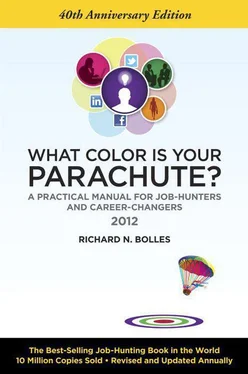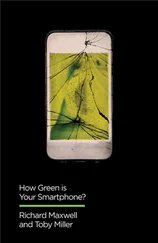12. We can make a list each day of the things that made us grateful, glad, or even happy. There is a habit of mind that is deadly while we’re out of work, and that is spending too much of our day, every day, brooding about what is wrong in our lives: What is wrong with people, what is wrong with our situation, what is wrong with anything and everything. We can, by this list, teach ourselves to focus on what precious people we still have in our lives, what possessions we still have, what precious gifts we still have, whether they be intelligence, health, or love.
If we want to get over being depressed, it is crucial that we give up endless complaint, it is crucial that we come to forgiveness for any past wrongs done to us, it is crucial that we, as Baltasar Gracián put it, “Get used to the failings of our friends, family, and acquaintances….”
We are all human. We are all capable of turning our face toward the future, rather than toward the past.
Some of us have faith, some of us do not. If you are one of those who do not, just skip this section. It is really addressed only to those who have faith .
13. We can revisit our picture of God and how He works in this world. The world out there might imagine that if we have faith we will find that faith our steady rock while we are going through a period of unemployment.
However, that’s not necessarily true. Sometimes faith can actually cause depression! This unexpected curve arises from our view of God, and whether or not that begins with both love and trust.
In the Christian church, for example, the Creed does not begin with “I believe there is a God….” It begins with “I believe in God….” We all understand the difference between believing something about a friend of ours, say that she is tall, or smart, versus believing in that friend. To believe in someone is to trust them, and to trust that they feel toward us as they say they feel.
Imagine, then, how depressed we can feel if we have always believed in God, but now that we are unemployed for a long spell, we feel He has somehow deserted us, in this crisis. So for some who had faith, their unemployment turns out to be a major spiritual crisis in their life. We cry out, “How could God have let this happen to me—if He truly loved me?” We get depressed.
What can we do about this? What is the remedy when our depression has—even in part—a spiritual origin? Well, this brings us to the fourteenth action we can take, to deal with unemployment depression:
14. We can, instead of abandoning our faith, put some energy into rethinking our faith on a higher level. Some 91 percent of us in the U.S. say we believe in God, but the question is, What kind of God do we believe in?
Half a century ago, a man wrote a book entitled, Your God Is Too Small . What unemployment or any crisis often reveals is how poor and small our concept of God is. It is small because it holds God responsible for everything that happens in the world.
Each of us has to figure this out for ourselves. But since people have asked me what I think, after eighty-five years on this Earth, my thoughts ramble along in this fashion: Jesus said the most important thing in the world, to God, was that we love Him. Robots can’t love. He has to give us freedom so we can choose to love, or not. With that freedom, however, comes the possibility that we will make wrong choices, and thus introduce tragedy into the world. Look at the mess the world is in right now. God didn’t do that!
Well, then, what does God do? To what larger conception of God might we press? Let’s try this: imagine that you have, in your dining room, a fine wooden chair, which one day has its back broken off completely—I mean, into smithereens—by a guest in your home. You run down the street, to call a carpenter who lives nearby. He comes and examines the chair. He pronounces the back unrepairable. “But,” he says, “I think I could make a fine wooden stool out of the remainder of the chair, for you.” And so he spends much time, shaping, polishing and sanding it, and fashioning out of the former chair a fine stool, more resplendent than anything you have ever dreamed. He inlays it with precious metals, and soon it is the treasure of your house.
This is, of course, a parable. Let me underline a couple of key points in it. First of all, the carpenter did not break the chair. Your houseguest did that. But the carpenter came quickly, and with all his art and powers. He tried, first of all, to see if he could repair it. Finding it was too late for that, he determined to make of it something even finer than it had been before. And, he labored mightily, to that end.
A faith that thinks God is responsible for our unemployment, and He could have and should have prevented it, needs to grow up. It has too small a God. Faith may lift us out of depression, or put us into depression. Faith may be either healthy or unhealthy.
We can reach, while we are out of work, toward a larger conception of our God and of ourselves. For, “to believe in God” has the power to lift us out of depression, unless our God is too small.
The question today is not “do you believe in God” (91 percent in America say they do, and 55 percent of all Americans say they consider their belief in God to be “a very important part of their lives,” while 90 percent of all Americans categorized their faith as “fairly important”—according to a series of Gallup polls, in which there has been little change since the late 1960s).
No, the real question today is: “Do your beliefs make you healthier or unhealthier?” Look at the chart on the next page.
| Healthy Religion |
Unhealthy religion |
| Is obsessed with gratitude |
Is obsessed with guilt |
| Focuses on the presence of God in the world; sees holiness everywhere |
Focuses on the presence of evil in the world; sees contamination everywhere |
| Sees all the world as “us” |
Sees all the world as “us vs. them” |
| Is closely related to mental health with its emphasis on repentance (metanoia) or “Most of my ills are self-inflicted.” |
Is distantly related to mental illness (paranoia) or “Most of my ills stem from what others are doing ‘out there.’” |
| Unconsciously exhibits humility |
Unconsciously exhibits arrogance |
| Treasures the differences in others |
Wants everyone to be like them |
| Has a high sense of “all the saints” worshiping God together |
Has a high sense of “the individual alone with his or her God” |
| Believes in learning from others |
Believes in confronting others |
| Renounces manipulation of others, and lets them have their own beliefs |
Desires to manipulate others into accepting their every belief |
| Wants God’s forgiveness toward those who have harmed them or follow other gods; forgives readily |
Wants God’s vengeance toward those who have harmed them or follow other gods; often has low, long-simmering anger, masked beneath a smile |
| Focuses on what one can give, out of faith; anxious to give others benefits |
Focuses on what one gets out of faith; anxious to get for themselves the benefits |
| Faith is primarily a matter of actions; words are used only to interpret one’s actions |
Faith is primarily a matter of words used as tests or orthodoxy. Shibboleth and sibboleth. |
| Is well aware that their faith may have some unhealthiness to it |
Doesn’t even dream their faith may be unhealthy |
If unemployment pushes us to rethink our faith, we should find not only our depression lifting, but also our understanding of faith increasing. That is a great gift. Depression is oftentimes a messenger bringing gifts, if only we open our eyes to see it.
Читать дальше












